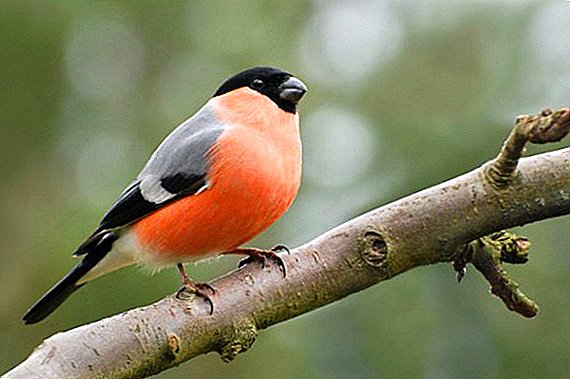 The medicinal properties of boxwood were used by our ancestors. In the East, this wonderful plant is used to this day, considering it a panacea for many diseases.
The medicinal properties of boxwood were used by our ancestors. In the East, this wonderful plant is used to this day, considering it a panacea for many diseases.
So what is a boxwood? Boxwood is an evergreen shrub that grows from 2 to 12 meters in height. The plant can be found on the African continent, in Europe, Asia, even in America. In Russia, boxwood grows on the Black Sea coast and in the gorges of the Caucasus. The plant has many useful properties, which we will tell you in this article.
Chemical composition of boxwood
Boxwood (or buksus) is rich in alkaloids. These substances have long been used in medicine and not only. Many alkaloids have both a therapeutic effect (vincristine - antitumor), and psychostimulant or narcotic (caffeine, cocaine).
 In all parts of the box (root, leaves, shoots and even bark) contains about 70 alkaloids, which have different effects on the human body. The main ones are cycloreanin B, cyclobuxin D, buxin, parabuxin, buxipiin. The leaves of boxwood contain approximately 3% of these substances. This percentage is considered elevated and valued in traditional medicine.
In all parts of the box (root, leaves, shoots and even bark) contains about 70 alkaloids, which have different effects on the human body. The main ones are cycloreanin B, cyclobuxin D, buxin, parabuxin, buxipiin. The leaves of boxwood contain approximately 3% of these substances. This percentage is considered elevated and valued in traditional medicine.
In addition to alkaloids, boxwood contains bioflavonoids (regulate the action of enzymes and restore body cells), resins, essential oils and tannins (have an antimicrobial effect).
Did you know? Catholics decorate their dwelling on Palm Sunday with the branches of the bush.
The use of boxwood in traditional medicine
Box in official medicine is not used due to the fact that the plant is very poisonous. However, in folk medicine it is used to treat many diseases and ailments.
Due to the fact that tannins are included in the composition of the leaves and bark of the buccus, it has an antibacterial and antiseptic effect. In Chinese medicine, various plants are used to treat ailments. Even poisonous boxwood in the East is used to treat arrhythmias and myocardial ischemia. In addition to the treatment of heart disease, the plant is used as an anesthetic.
 Buxus treats unhealed wounds and ulcers on the body. Also, the plant is used in the treatment of seborrhea and alopecia. We use coughs, diarrhea, joint pain and baldness to treat the leaves and bark of this plant. Worth mentioning sweatshops, diuretic and hypotensive properties of boxwood.
Buxus treats unhealed wounds and ulcers on the body. Also, the plant is used in the treatment of seborrhea and alopecia. We use coughs, diarrhea, joint pain and baldness to treat the leaves and bark of this plant. Worth mentioning sweatshops, diuretic and hypotensive properties of boxwood.
Important! An overdose of infusion of boxwood can lead to serious consequences, so in no case do not exceed the specified dose.
Let's start with the infusion of boxwood for pain relief. Take 0.5 tsp of dry leaves of the cusp and brew in a glass of boiling water. To accept inside on 1/3 glasses 3 times a day.
When baldness and seborrhea use another tincture, which is designed only for external use. At 0.5 liters of vodka take 50 grams of fresh leaves and insist 2 weeks. This infusion is necessary to rub small doses into the skin (in bald places on the head or in the hairy part with seborrhea).
These are basic recipes that have an accurate dosage. It is necessary to use boxwood carefully, since even a adjusted dose can cause allergies or skin rashes.
Did you know? Buxus is a good honey plant that gives early bribes. But the honey obtained from the nectar of boxwood is very toxic for humans.
The magical and bioenergy properties of boxwood
 Boxwood is used not only in traditional medicine, but also in magic. Therefore, when you hear the phrase "magic and boxwood" - do not be perplexed.
Boxwood is used not only in traditional medicine, but also in magic. Therefore, when you hear the phrase "magic and boxwood" - do not be perplexed.
According to legend, the flute of Athena (ancient Greek goddess) was carved out of boxwood. Amulets and amulets that protect their masters from evil forces are made from buxus wood. Also, these amulets can protect from energy vampirism. If you fall asleep badly, or you have nightmares, you can put a sprig of boxwood under the pillow. The plant will relieve bad dreams and you will not suffer from insomnia.
Studying myths and legends, one can conclude that boxwood is something good, bright. If you dream of this plant, then you are waiting for the fulfillment of desires or the fulfillment of goals. If in a dream you make your way through boxwood bushes - a bright future awaits you, a “white line” in life will come.
Collection and preparation of medical raw materials from boxwood
For therapeutic infusions, the bark and leaves of the plant are used. But before using them, you need to carry out proper preparation of raw materials.
Buchsus leaves are collected during flowering (spring or summer). It is necessary to select the whole and healthy leaves, wash them and dry at a temperature not higher than 45 С. Therefore, only natural drying can not be used.
 We must not forget about the benefits of boxwood bark, which is also used in traditional medicine. The shrub has a dense heavy bark, which is not easy to separate. The bark is cut from plants that are at least 4-5 years old. Pruning is carried out with a sharp knife after the plant has faded. Then it is washed, crushed and dried.
We must not forget about the benefits of boxwood bark, which is also used in traditional medicine. The shrub has a dense heavy bark, which is not easy to separate. The bark is cut from plants that are at least 4-5 years old. Pruning is carried out with a sharp knife after the plant has faded. Then it is washed, crushed and dried.
Did you know? Boxwood is the hardest of all wood found in Europe. Its density exceeds the hornbeam, it can not be cut with an ax, and when it gets into the water it sinks.
How to use boxwood evergreen in other areas
The box has various properties that are used in woodcutting, turning and landscaping.
The unique density of evergreen shrub used to create valuable luxury items, small crafts and even chess. Just imagine that the smoking pipes of the highest ranks were made of this tree. Many expensive musical instruments are also made of boxwood. Buxus is used to create perfectly smooth car parts, parts for surgical instruments and measuring instruments.
Important! The cost of boxwood wood is incredibly high, so be careful when buying cheap products from shrub wood.
 Boxwood is used as an ornamental plant, which is planted in gardens throughout Europe. If you once saw photos of curly pruning of trees in the form of animals or people, then these photos show a box. Due to its plasticity and slow growth, it is possible to make an incredibly beautiful living sculpture from a bush. Boxwood is also grown in indoor gardening, as it is suitable for creating bonsai.
Boxwood is used as an ornamental plant, which is planted in gardens throughout Europe. If you once saw photos of curly pruning of trees in the form of animals or people, then these photos show a box. Due to its plasticity and slow growth, it is possible to make an incredibly beautiful living sculpture from a bush. Boxwood is also grown in indoor gardening, as it is suitable for creating bonsai.
Contraindications and side effects of boxwood
The box can not only heal, but also exacerbate the disease, causing poisoning and even death. Infusions, decoctions, essential oils from boxwood may be the strongest poison if used improperly or excessively.
So, overdosing leads to the following side effects: diarrhea, vomiting, hyperemia, convulsions, suffocation, or even death. Preparations from boxwood are contraindicated allergies, cores, asthmatics, and people with ulcers of the stomach or duodenum.
It should be very careful to use boxwood and when identifying at least one side effect Immediately call an ambulance. The fact is that death can come from asphyxiation, which does not appear immediately.
Take care of yourself, do not exceed dosage and use infusions and decoctions only as directed.
 Now you know that boxwood can be used to cure many diseases, use it as a talisman against evil forces, or plant it in your garden. However, it is worth remembering that the cure for poison differs only in doses, so be attentive and careful.
Now you know that boxwood can be used to cure many diseases, use it as a talisman against evil forces, or plant it in your garden. However, it is worth remembering that the cure for poison differs only in doses, so be attentive and careful.












